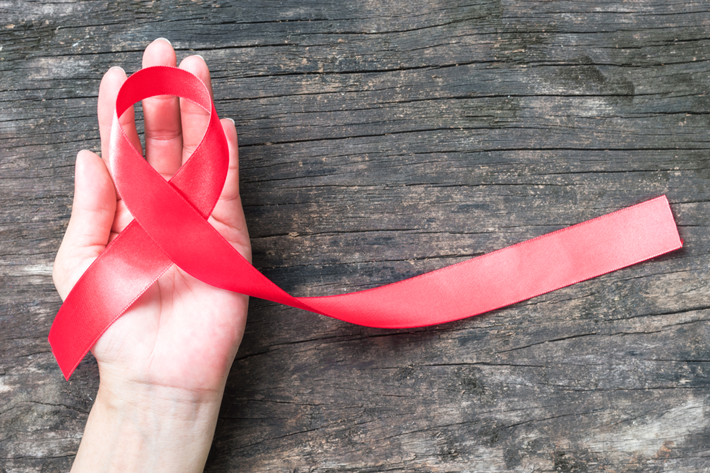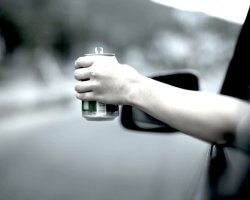For Parents: A Lesson in Effective Prevention for Red Ribbon Week

Red Ribbon Week occurs every October, offering schools and community groups the opportunity to present a consistent anti-drug message to youth. While it’s usually organizations that utilize the Red Ribbon Week theme, it’s also a good time for parents to take a look at ways they can increase the effectiveness of their anti-drug messages to their children.
Parents may not realize the number of pro-drug influences their children are surrounded by. This article sheds some light on this subject and may help parents realize the true extent of their task.
Keeping your kids drug-free and alcohol-free until they are adults (at least) is a challenging—but not impossible—task. To help you, we’ve compiled ten commitments a parent should make to become more effective in their prevention efforts. These promises can act as guidelines as a parent navigates the challenging waters of drug prevention at home.
1. I promise to do everything in my power to raise my children to be fully drug-free, and alcohol-free until they reach a legal age.

You might think this one would go without saying. But actually, many parents aren’t completely sure that it’s necessary. Perhaps a little drinking or pot use is insignificant or even acceptable. This is even more likely if the parent is using the same drugs.
In a story on the Vancouver Sun website, the parents of 16-year-old Callum found out that he was smoking marijuana. His father wasn’t sure if he should be accepting or adamant. Callum’s response to that: “I remained dishonest with him and took his ambivalence as a form of complacency.” Callum soon migrated to the use of acid, ketamine, MDMA, cocaine and Tylenol 3s.
2. I promise to start educating them early, while they are still in elementary school. If they are already past this age and I have not yet started this job, I will start immediately.
It’s not at all uncommon for young people to start abusing inhalants, smoking pot or drinking when they are 12 or 13 years old. They have probably seen others using drugs or drinking and have been offered samples before this age.
3. I promise to be insistent and crystal clear that I am 100 percent opposed to any illicit drug abuse, any misuse of prescription drugs and any underage alcohol use.
When parents make this undeniably, unmistakably clear, there’s less drug abuse among their children as can be seen in this survey from the National Center on Addiction and Substance Abuse.
4. I promise that every conversation with my children will stay simple and accurate and that I will never exaggerate the dangers.
If you tell children that they will die if they snort an OxyContin or go crazy if they smoke weed and they don’t see these effects around them, they will probably discount everything you say after this inaccuracy is observed.
5. I promise to let my children ask questions about substance use and I will do my best to find them accurate answers. If they bring up drug or alcohol use they have seen, I will refrain from being critical or accusative.

This isn’t the easiest task for a parent. But if your child learns that he can talk about his friend who smokes weed, who offered him weed and he tried a couple of puffs, they will also learn they can come to you with more serious drug situations.
6. I promise I will educate my children on the way “peer pressure” may be as subtle as simply not wanting to miss out on the “fun” that friends seem to be having.
It would be smart to work with your child on scripts they can use to escape situations where their friends expect them to join in the drinking or drug use. For example, they can say, “My parents drug test me a couple of times a month. If I fail, I’m dead.”
7. I promise that if my children call me any time of the day or night for a ride home from a place where drugs or alcohol are being used, I will pick them up without criticizing or making a fuss. Instead, after they are home, I will help them take an objective look at how they got into that situation and how to avoid it in the future.
As a parent, you may be upset and worried to have your child in such a situation, but it’s important to remain calm and don’t over-react. If you “make a big deal over it,” you most likely won’t get a phone call in the future. Do have a cool, calm discussion with your child about how they ended up in this situation and how to prevent it from happening again.
8. I promise to educate my children on the dangers of abusing inhalants, alcohol, illicit drugs and pills.
To do this, you must be educated yourself. We have many pages you can use to get started. Find out more about You can use the links on this page to get your own education rolling.
9. I promise I will set a good example for my children by never allowing illicit drugs in my home, always using prescription drugs exactly as prescribed and using alcohol in moderation (or not at all).
Your children will learn how acceptable drug and alcohol use is by watching you, despite anything you say.
10. I promise to keep prescription drugs and alcohol locked up when they are not actually in use.
We realize this is not convenient. But it’s necessary. Too many pills are diverted to abuse, too many youths filch alcohol from home supplies or the supplies of neighbors or friends. Don’t forget the alcohol stashed in the garage, either. By leaving pills in your medicine chest, for example, you could be responsible for causing the overdose that kills a visiting teen or the repairman who stole a few pills from your home. You can’t tell they are addicted just by looking at them. To make securing these substances easier, there are many locking pill boxes and medicine cabinets available on the internet. Alcohol bottles can be stashed in a locked refrigerator or garage cabinet.

Keeping a child drug-free is not as simple as threatening a child with lasting grounding if he uses drugs or gets drunk. In today’s world, this job is going to require vigilance over a period of several years and many conversations to educate, remind and listen.
Your children will see drugs used, will see alcohol consumed to the point of drunkenness, will be offered drugs, or drinks while underage. A thorough knowledge of the dangers in their own minds and hearts and your 100% insistence on a drug-free household will go a long way to keeping them safe.
For more help in preventing drug abuse among your children, visit our Parent Center: http://www.narconon.org/drug-abuse/parent-center.html. Or call us at 1-800-737-5250.


 ®
®